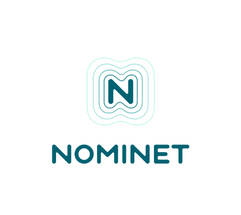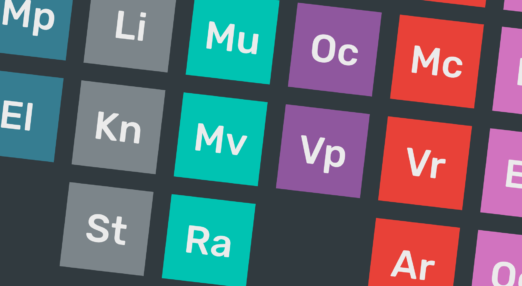Data Poverty Lab Fellowship
Nominet and Good Things Foundation are supporting the Data Poverty Lab Fellowship scheme to explore sustainable solutions to data poverty.
Nominet and Good Things Foundation have launched the Data Poverty Lab Fellowship Scheme, and we are excited to introduce our four fellows. Our fellows have been exploring three themes:
- Place-based pioneers: What community-led solutions to data poverty are emerging, and how could these be scaled regionally or nationally?
- Talking about the issue: How do we talk about data and data poverty?
- Internet access: Should internet access be viewed as an essential utility or a human right?
Theme 1: Scaling solutions to data poverty in the UK
Through the pandemic, people and community organisations have had to respond to data poverty in their communities, finding creative ways to maintain internet access for people on low incomes. Research for Local Trust in 2021 shared some of this learning. Social housing associations, community enterprises and others are also developing solutions. Which approaches have the most potential to make a difference – not just for people and places, but also for society and how we think about internet access?
Our Data Poverty Lab Fellow for this theme is Kat Dixon, Kat builds partnerships to reimagine public services and access to healthcare. Whilst Director of Partnerships at national charity Catch22, she has built digital skills and online safety programmes with global tech giants such as Microsoft, Google, Salesforce and TikTok. She is a Digital Poverty Alliance Ambassador, advises on the Digital Youth Index and sits on the Advisory Group for the Minimum Digital Living Standard. She speaks and writes on digital inclusion and equality, including the 2022 Digital Inclusion Policy and Research Conference, Connected Britain 2022 and the 2022 Labour Party Conference. This fellowship was awarded in Spring 2022 as one of three fellowships with the Data Poverty Lab.
Becoming a Fellow with the Data Poverty Lab is so exciting to me - I’ll be looking at community-led initiatives and how these can be scaled regionally and across the UK. The power of digital access is huge. I’ve seen first hand the difference a laptop and a dongle can make in someone’s life. I’m excited to be part of the solution and help nudge the dial on this big social challenge.
Read Kat's fellowship report
Theme 2: Talking about data and data poverty
Jargon is an extra barrier to finding and promoting solutions to data poverty. We need to understand more about how people think about and understand ‘data’ to design and deliver more effective solutions. We’re looking for Fellows who want to think through, and start to test, some simpler ways of explaining what data connectivity means and what data poverty is about – cutting through the jargon to support better solutions, advocacy and action.
Our Data Poverty Lab Fellows for this theme are Charlotte Elliott and Dr. Becky Parry.
Charlotte is an Executive Educational Leader and Social Entrepreneur, who is the CEO of Affinity 2020 CIC in Rotherham. Affinity 2020 CIC bridges the gap between social care and education for young people up the age of 25. As Data Poverty Lab Fellow, Charlotte will be exploring theme two, talking about data with the Care Experienced community in Rotherham, focusing on the growing Creative Sectors.
I'm thrilled to have been given the opportunity to explore this theme, and find solutions for our Care Experienced community by engaging with the Creative Sectors.
Dr Becky Parry is a lecturer in Digital Literacies at the University of Sheffield who researches youth media and youth media productions. Becky is currently leading WorldBuilders, a Paul Hamlyn Foundation funded teacher development project, with The National Videogames Museum and Maker{Futures}, schools and artists. Becky is also a freelance arts evaluation partner who collaborates with creative industries and cultural organisations in order to help them develop their practice and enhance their impact.
I am delighted to be working with Charlotte Elliott and Good Things Foundation, focusing on the impact of data poverty on care experienced young people. We know that data poverty has impacted on young people's access to education opportunities, but we want to understand more about how it acts as a barrier for participation in and progression to the creative and cultural sector. We are also excited to be working with young people in Rotherham to identify ways and means of tackling the inequities they experience.
Read Becky and Charlie's fellowship report
Theme 3: Internet access – essential utility or human right?
The internet is not – and should not be – a luxury. The web was designed ‘for everyone.’ But the pandemic has highlighted significant inequalities of access. We want to explore the implications of framing internet access as ‘an essential utility’ or ‘a human right’ or something else. Exploring this – the implications, pros and cons of different approaches – is critical to focusing future advocacy and policy development.
Our Data Poverty Lab Fellow for this theme is Shade Nathaniel-Ayodele, who is a Technology Project Manager focusing on digital inclusion, connectivity and skills at Southwark Council. She is passionate about digital inclusion and bridging the digital divide and this fellowship is a chance to drive change and tackle digital poverty.
The fellowship sparked my interest as it was an opportunity to highlight the importance of connectivity as the fourth utility and interrogate what this means for the stakeholders involved in bringing this to fruition – from the policymakers in Central Government down to the telecommunications operatives deploying the fibre.
Read Shade's fellowship report
Why is this important?
Each of these themes are key areas which have emerged through our research in the Data Poverty Lab. We believe it is crucial to understand these issues in order to design effective, sustainable solutions to data poverty and to increase the impact of existing interventions.
Fellows were awarded £12,000 per theme, and reports will be produced by the fellows for their corresponding themes.
Our Partner

Nominet



